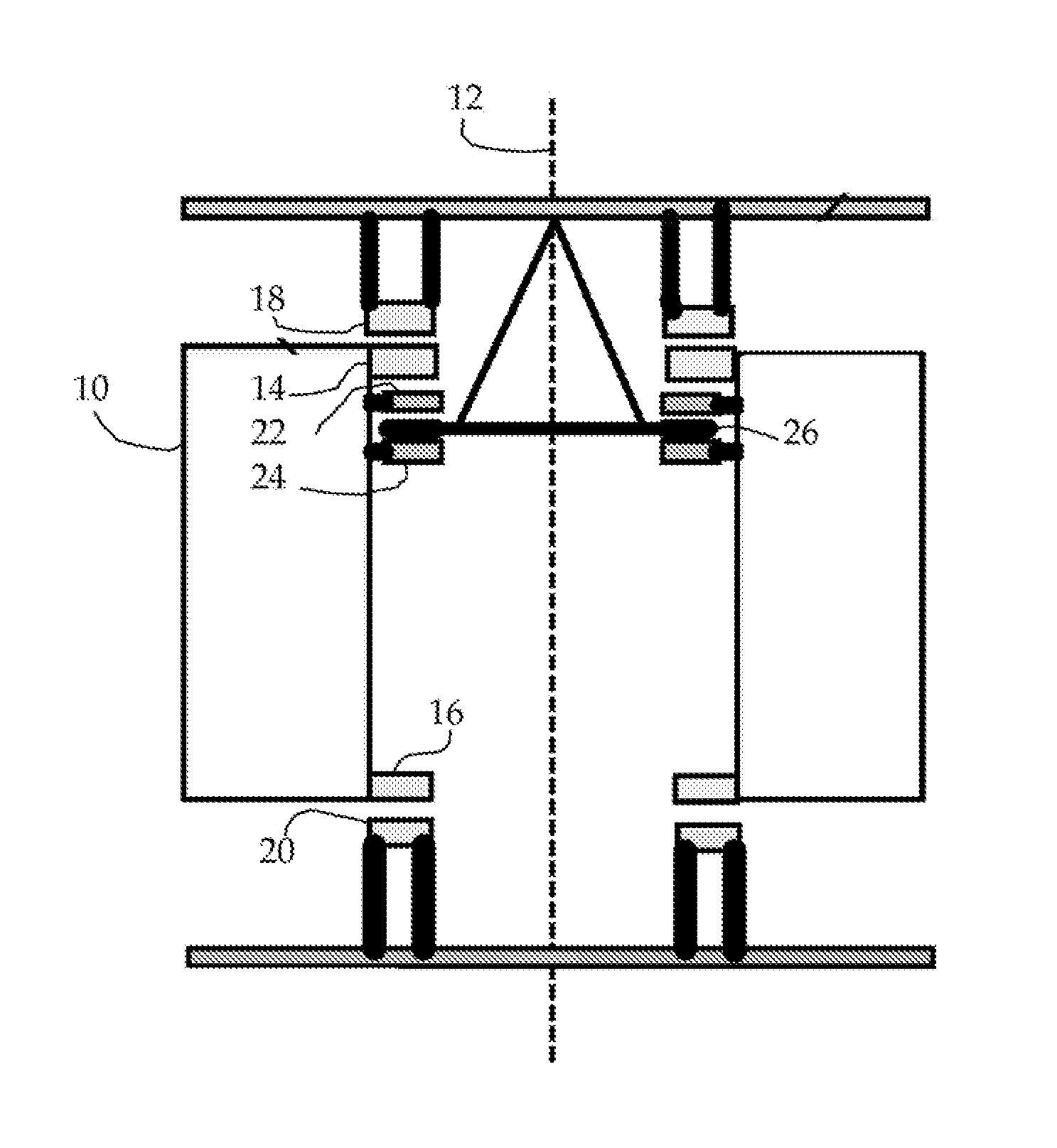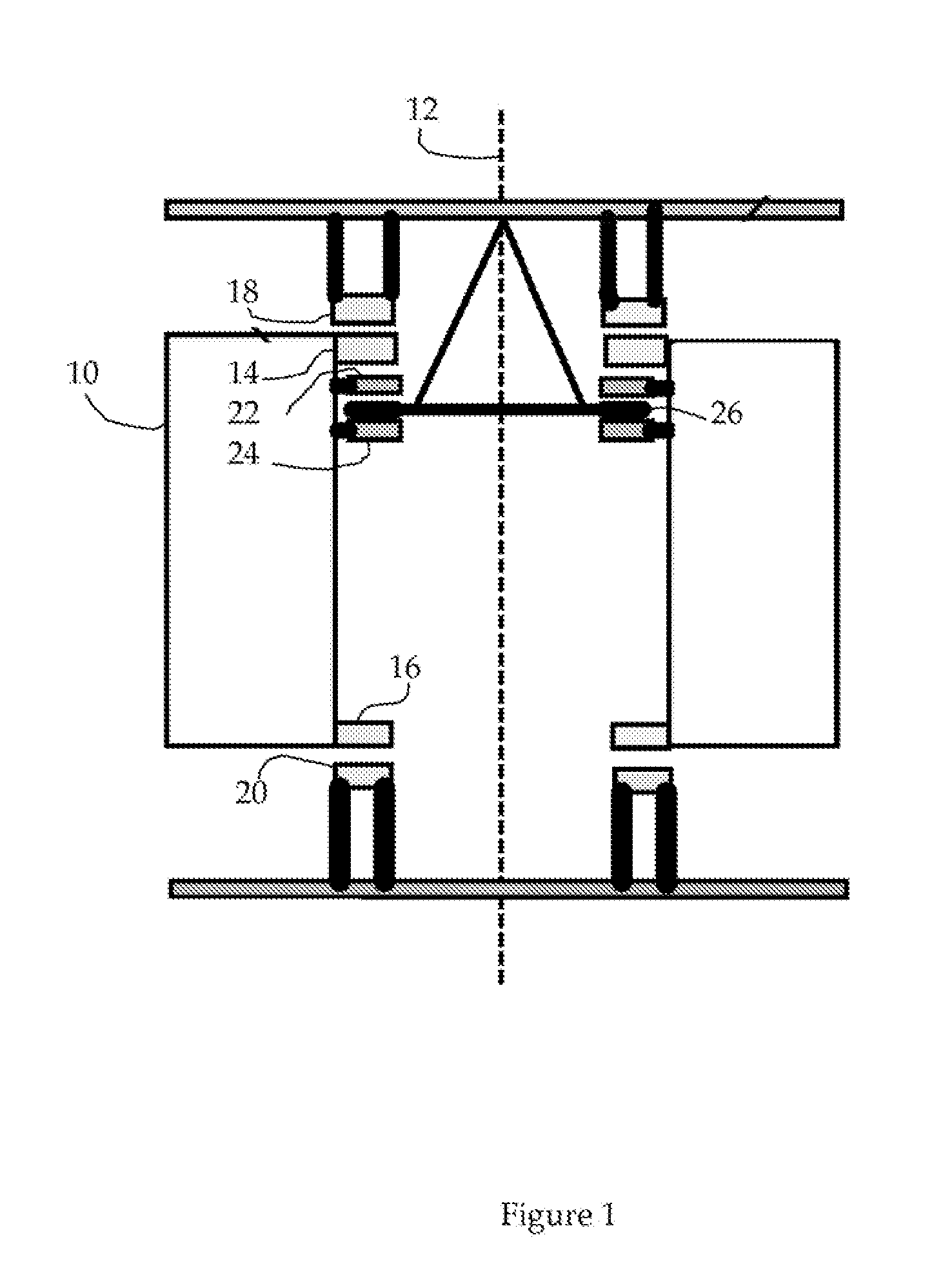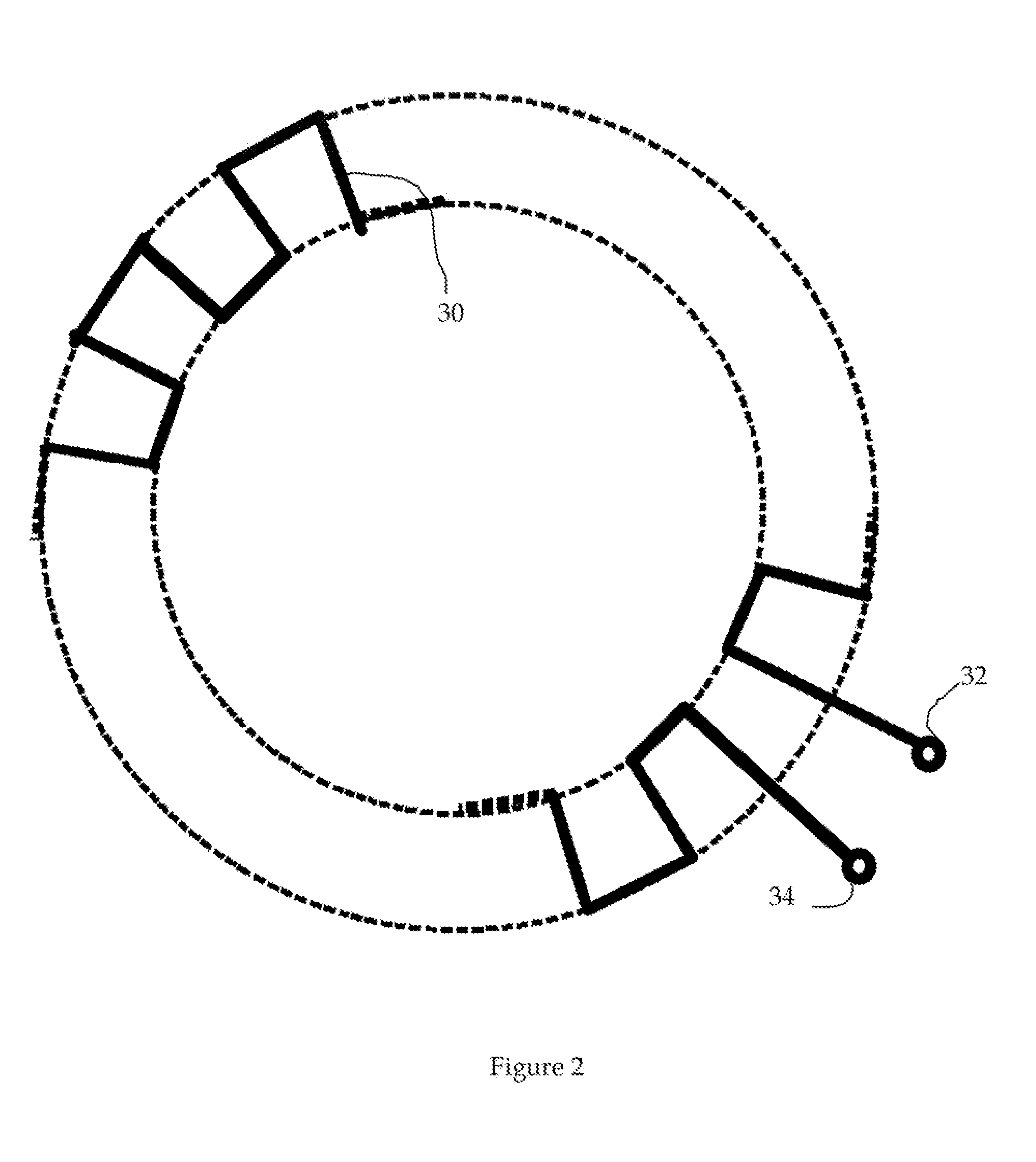Passive magnetic bearing system
a magnetic bearing and passive technology, applied in the direction of bearings, shafts and bearings, dynamo-electric machines, etc., to achieve the effect of minimizing current and improving the stabilizer for displacemen
- Summary
- Abstract
- Description
- Claims
- Application Information
AI Technical Summary
Benefits of technology
Problems solved by technology
Method used
Image
Examples
Embodiment Construction
[0019]The invention is concerned with satisfying constraints on passive magnetic bearing systems that may be associated with a particular application. Examples of such constraints are applications where the positive stiffness requirements may vary during operation of the system. An example would be a flywheel system to be used in a vehicle. When the vehicle is at rest the net positive stiffness need only be sufficient to insure stability of the EMB rotor in the absence of accelerations. The stabilizer can thus be designed to minimize the resistive losses in the windings when in the standby mode, thus allowing long self-discharge times. When the vehicle is in motion, however, the stabilizer stiffness must be increased to maintain centering under the accelerations that are encountered. In stationary applications, it may be desirable to find a simple means to “tune” the levitation magnet / stabilizer system to minimize its power losses.
[0020]Some embodiments of the new invention include ...
PUM
 Login to View More
Login to View More Abstract
Description
Claims
Application Information
 Login to View More
Login to View More - R&D
- Intellectual Property
- Life Sciences
- Materials
- Tech Scout
- Unparalleled Data Quality
- Higher Quality Content
- 60% Fewer Hallucinations
Browse by: Latest US Patents, China's latest patents, Technical Efficacy Thesaurus, Application Domain, Technology Topic, Popular Technical Reports.
© 2025 PatSnap. All rights reserved.Legal|Privacy policy|Modern Slavery Act Transparency Statement|Sitemap|About US| Contact US: help@patsnap.com



